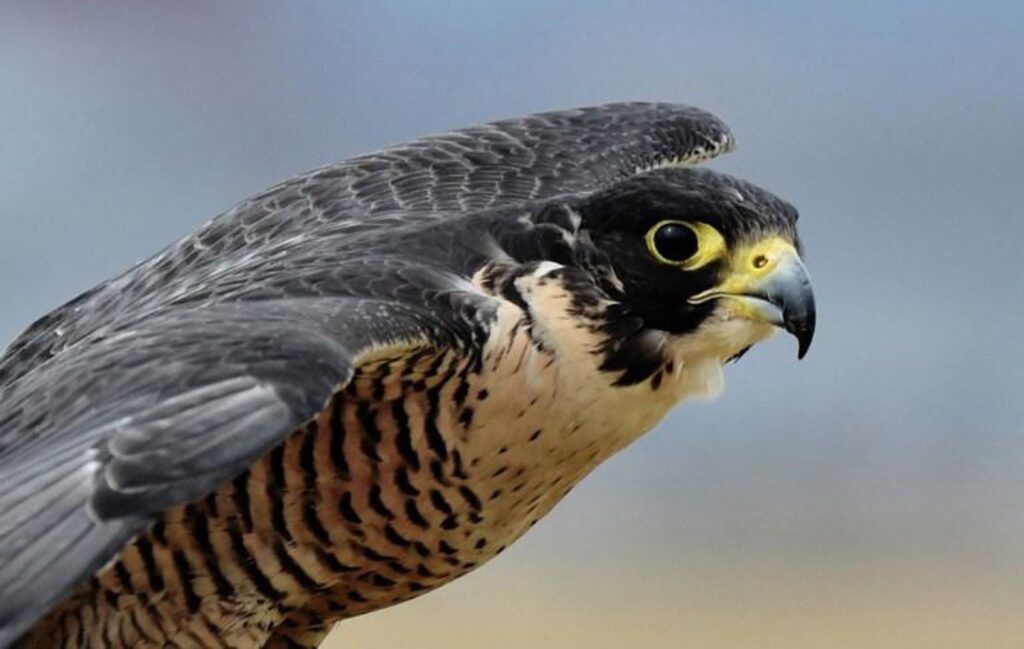Spring is settling over Belgium, which is the season for the birth of many animals, including the peregrine falcons.
As of Friday, live footage of three pairs of these birds of prey can be viewed online thanks to a livestream of the Institute of Natural Sciences. The first hatchings are expected next week.
For the last 20 years, the Natural Science Museum has allowed the public to monitor the hatching of baby peregrine falcons nestled in the capital. The Falcons For All website hosts three live streams of three different Falcon families, from the emergence of the newborns to the flight of the fledglings.
These three pairs nest at the Cathedral of St. Michael and Gudula, the Church of Saint-Job in Uccle, and the belfry of the historic building of the Free University of Brussels (ULB).
The couple nesting in the cathedral is incubating a single egg, which the Institute of Natural Sciences deems "exceptional". The museum explains this year’s egg-laying period has been unusually late this spring, almost three weeks behind last year. This is also contributing to the diversity of biology”. The egg is due to hatch around 27 April.
At the Church of Saint-Job in Uccle, the pilgrim pair has been incubating two eggs since 10 March. This time, the birds are a week ahead compared to last year. Initially, three eggs were laid, but one was quickly broken by the female. The chicks are expected to hatch around 10 April.
A screen installed in a shop in Saint-Job Square opposite the church allows passers-by to observe the nest. Telescope observation sessions with explanations will also be organised on 13, 14, and 21 April, as well as 12 and 19 May.
At ULB’s Solbosch campus, four eggs are being incubated. The hatch is expected around 21 April. Observation sessions will also be organised here, on 14 and 18 May.
Peregrine population has declined significantly since the 1950s in most parts of Europe and almost all of North America due to poaching and the use of pesticides.
The birds of prey ceased nesting in Belgium in the early 1970s. However, thanks to protective measures and the ban on pesticides, the species has returned to Belgium since the late 1990s.

